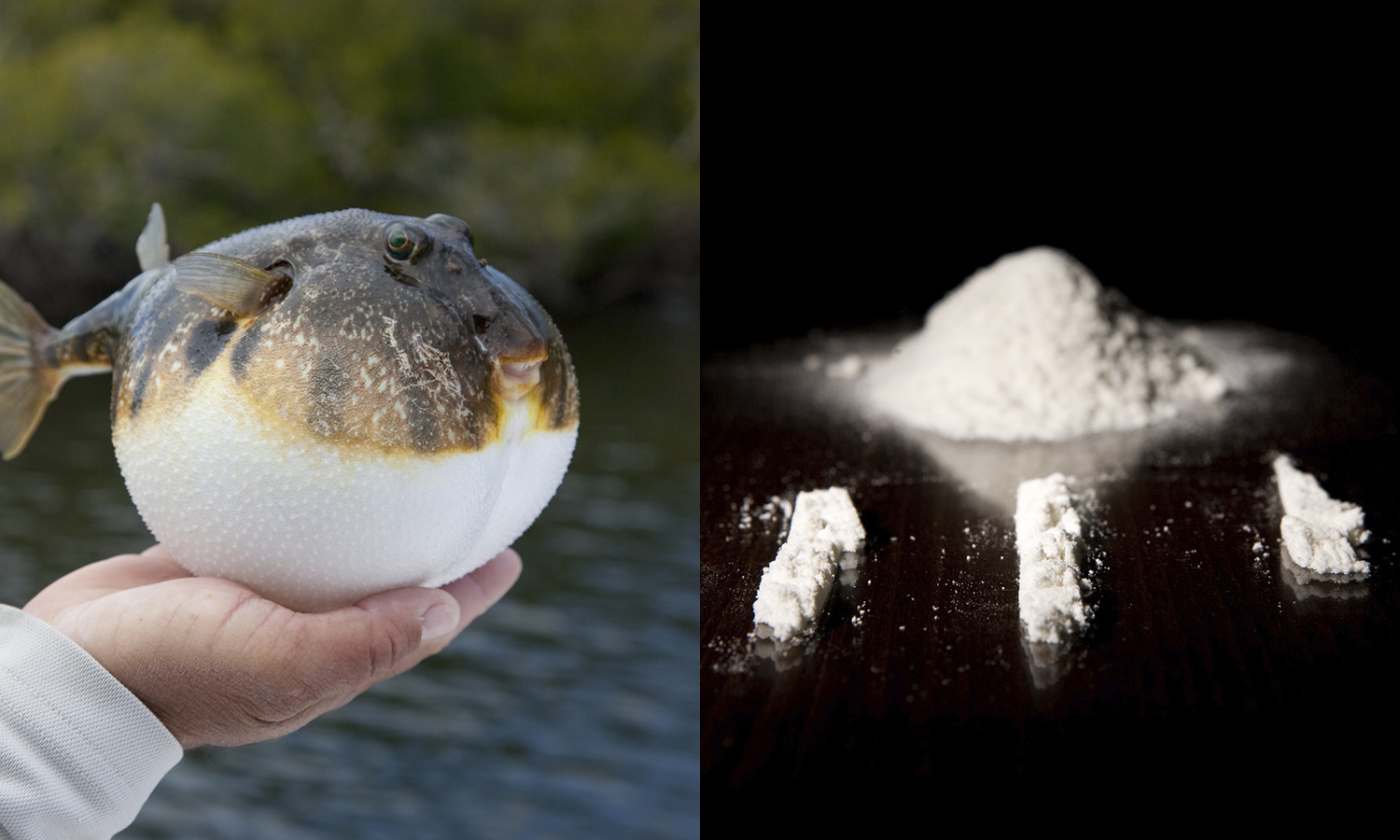Mixing Poisonous Pufferfish and Cocaine Is a Terrible Idea, Florida Man Learns

Credit to Author: Jelisa Castrodale| Date: Tue, 02 Jul 2019 12:18:37 +0000
The Florida Department of Health has its own PowerPoint presentation about the dangers of eating pufferfish, and it just needs one slide to get the point across. “EAT PUFFER AND YOU MAY SUFFER,” it says in all caps at the top of the page. “Although pufferfish is a popular dish in some regions, eating southern puffer can make you sick,” the agency continued.
There are at least nine different species of pufferfish that can be caught in Floridian waters, which means that there are at least nine species of pufferfish that shouldn’t be eaten. The fish contain a potentially deadly neurotoxin that—best case scenario—can cause numbness, dizziness, and difficulty breathing; in the worst case scenario, it can literally kill you. (The Florida Fish and Wildlife Commission prohibits anyone from hunting these fish, purely because of their potential to cause A Very Bad Time.)
A 43-year-old man somehow missed those warnings, and almost offed himself by eating pufferfish liver—one of the most toxic parts of an already toxic fish. The man’s near-death experience was recently chronicled in a case report called “ Blow: a case of pufferfish intoxication in South Florida.” After eating the liver, the man started vomiting profusely, had numbness and weakness in his legs, couldn’t speak clearly, and had chest and stomach pains. Within four hours, he was in the emergency room, where doctors also discovered that he had extremely high blood pressure and chronic kidney disease.
The man admitted that he’d also been using cocaine, and the docs attributed his blood pressure to that kind of blow. But the other symptoms were thanks to tetrodotoxin, the poison found in some kinds of pufferfish. Tetrodotoxin, or TTX, is more than 1,000 times more toxic than cyanide, and there is no antidote for it. (In pufferfish, the highest concentrations of TTX are found in the skin, ovaries, and the liver, making this man’s bad decision even worse.)
The docs gave the man activated charcoal, antibiotics, and put him on a respirator to ensure that he would be able to breathe, even if the TTX further paralyzed him. “If intoxication does not result in death, symptoms usually recover within 24 hours, as was the case with our patient,” Dr. Patricia Almeida wrote in her report. (The man’s grandmother was also treated for dizziness and some muscle weakness, but because she hadn’t eaten as much of the fish—or any of its liver—her symptoms were not as severe).
Unfortunately, the man’s kidneys did not recover from the TTX, the cocaine, or the combination of the two; he will require dialysis treatments for the rest of his life. He also didn’t (or wouldn’t) tell the doctors where he got the fish in the first place. “Pufferfish consumption is not commonly seen in the United States,” Almeida wrote. “However, both consumers and healthcare professionals should be aware of its particular life-threatening clinical manifestations […] For now, we will forewarn the public to refrain from consuming the deadly delicacy known as ‘fugu.’”
Some species of pufferfish, or fugu, remain a delicacy in Japan, where chefs train for two years to learn how to safely prepare it. Those chefs also have to pass a proficiency test, complete an apprenticeship, and apply for a license to prepare and serve it. (There is no such licensing requirement in the United States, but the U.S. Food and Drug Administration has serious restrictions on the import of fugu from Japan, and requires Japanese chefs to remove the most toxic parts it before it’s boxed up and shipped out of the country.)
In December 2014, a 30-year-old man and his 33-year-old sister bought some fugu from a New York City street vendor and took it back to Minnesota with them “as a treat.” The two of them ate it, and both of them were in the emergency room a few hours later. (“My teeth can’t feel themselves,” the unidentified man reportedly told the doctors who treated him.) According to NBC News, the siblings left the hospital against the docs’ orders, and disappeared before the cops could ask them any additional questions about the fish or who they purchased it from.
At least they didn’t combine it with cocaine.
This article originally appeared on VICE US.